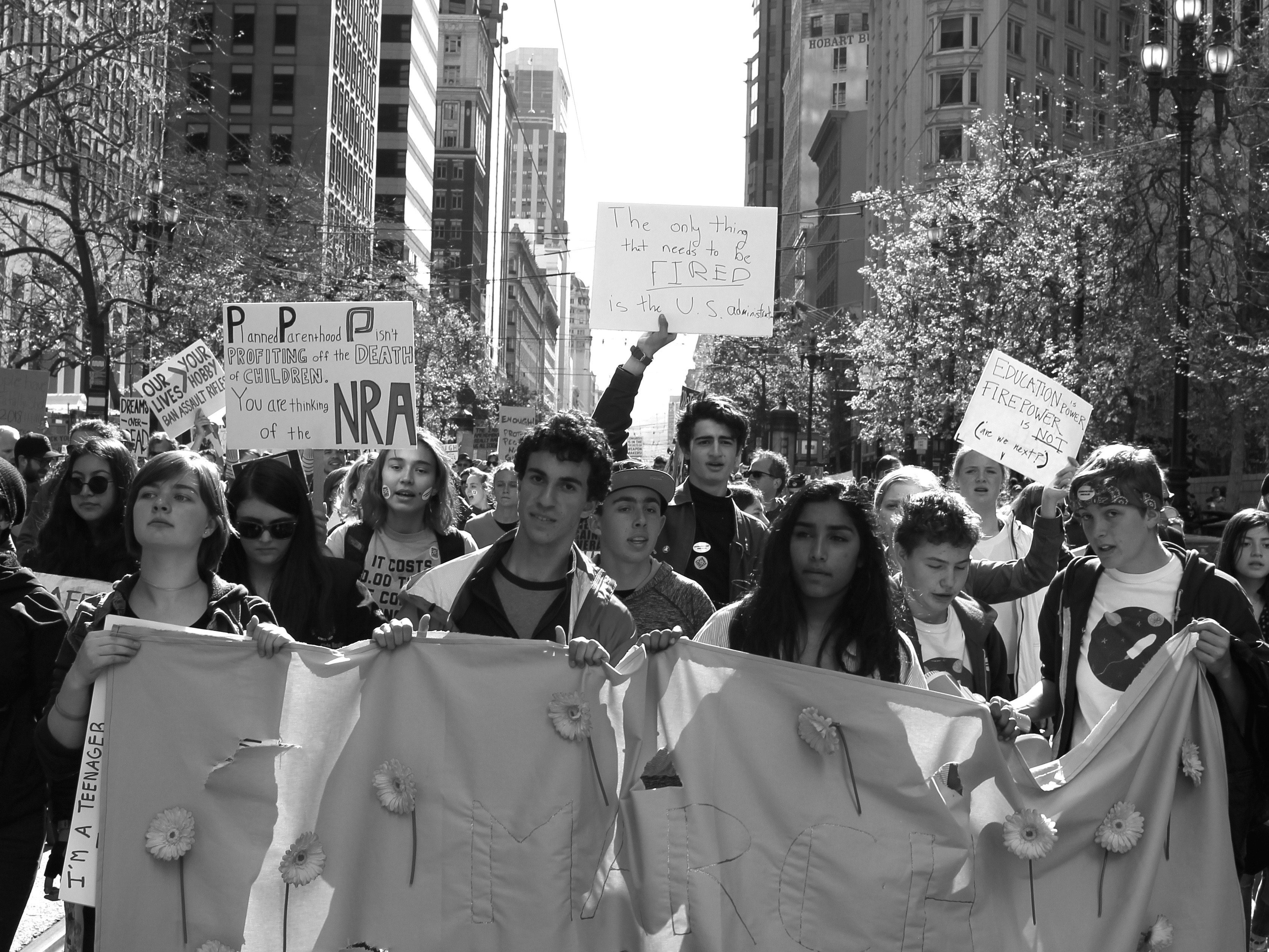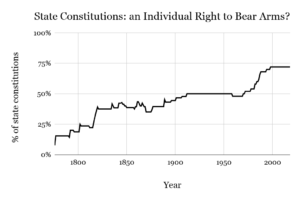
Right now is a watershed moment in American history.
Even if it fails to change a single gun policy in the United States, the March for Our Lives movement will have left its mark: a new generation of activists. As a teenager, I feel proud to witness and to participate in our generation’s grand entrance to the nationwide political scene.
Many political and data scientists divide Americans into demographic “generations” shaped by social trends and galvanizing moments. Baby Boomers, for example, were born between 1946 and 1964 in the aftermath of World War Two, and spent their formative years amidst the Civil Rights Movement of the 1960s, the Vietnam War, and the assassination of a president and several other prominent political figures. Baby Boomers, Generation Xers (born 1965-1980), and Millennials (born 1981-1996) are all now old enough to vote, according to the definitions used by Pew Research Center, a leading polling organization. The next generation, 22 years of age or younger (including high schoolers), currently lacks a permanent name. Pollsters and marketers often use placeholder terms like Generation Z or Post-Millennials, while more distinctive suggestions include iGen, Generation Alpha, and Generation Delta (apparently, Ancient Greek is more popular than I thought). Tellingly, in response to the wave of teen-led protests, many media outlets are now calling us the Parkland Generation.
In the past, we have followed other generations in protests rather than leading direct action ourselves. Millennials founded Black Lives Matter,
while the Tea Party drew its base of support from Baby Boomers. I, like so many other young people, was told to wait until I was older and wiser; I was called too young, too inexperienced, and too foolish to lead.
Now, we’re reaching maturity.
The March for Our Lives is a dramatic shift in the political status quo. The movement, founded and led by high schoolers, is the first time that the Parkland Generation has set the agenda for broadcast news and social media discussions of politics. For the first time, teens born in the 21st century have held the attention of America, not as an object of ridicule, but as cause for celebration. For the first time, we have cornered senators, shouted from podiums, registered to vote in record numbers, and flooded streets with throngs of chanting Americans — not only from the Parkland Generation, but Millennials, Generation Xers, and Baby Boomers as well.
It struck me, at the March for Our Lives rally in San Francisco on March 24th, how often the words “our generation” hummed in the air. I saw prior generations hand the torch of changemaking off to us. Adults like San Francisco mayor Mark Farrell and California senator Dianne Feinstein introduced kids, not the other way around. Bands from the Summer of Love gave way to teenage rappers and poets. Activists and organizers looked forward to turning 18, in order to fulfill their pledge to vote politicians in or out. Words flowed from people our age to fill the ears of tens of thousands, demanding that they listen now, refusing to wait until we get older.
In the subsequent march down Market Street, for the first time, I felt comfortable raising my voice to start a chant myself.
If the students at Stoneman Douglas High School are any example, America is entering a new generation of political protest. In only a month, we’ve already out-organized the leaderless Occupy Wall Street movement. Within days of its inception, the March for Our Lives chose prominent spokespersons (Emma González, Cameron Kasky) and proposed specific changes to existing laws (bans on assault weapons and high- capacity magazines, and an end to the gun show loophole). With each step, teen activists are building on what they have learned from the well-organized Black Lives Matter movement. Successful protest movements need both passion and discipline. We have each in spades.
As the Parkland Generation enters adult life, the volume of our political voice will only increase. The March for Our Lives is a clue about what, and how, we will be shouting. In the moment, society will measure the movement’s effectiveness in laws changed and damage to the National Rifle Association. Ultimately, however, the teens at Stoneman Douglas may be remembered by history as the first in their generation whose yells echoed through an entire nation.







